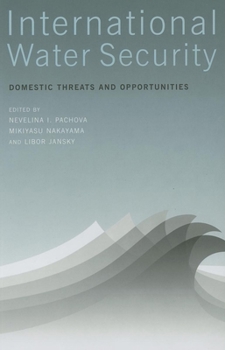International Water Security: Domestic Threats and Opportunities
Managing water is a challenging task, particularly in the shared water basins that host more than half of the world's population. National sovereignty and security considerations have long constrained the reasonable, equitable, and sustainable use of international water courses. With democratization and globalization on the rise, domestic actors have an increasingly important role to play in national decisionmaking and traditional foreign policy debates. This change entails new threats but also presents new opportunities for ensuring international water security. This volume explores both these threats and opportunities. Using case studies, the authors analyze the multifaceted and dynamic nature of the interplay between domestic and international water security. The book examines a range of past, ongoing, and emerging international water disputes from the Middle East, Africa, Asia, and Europe. Well-known cases are revisited from new perspectives while new approaches are suggested as analytical frameworks and practical tools for understanding and coping with emerging security threats.





